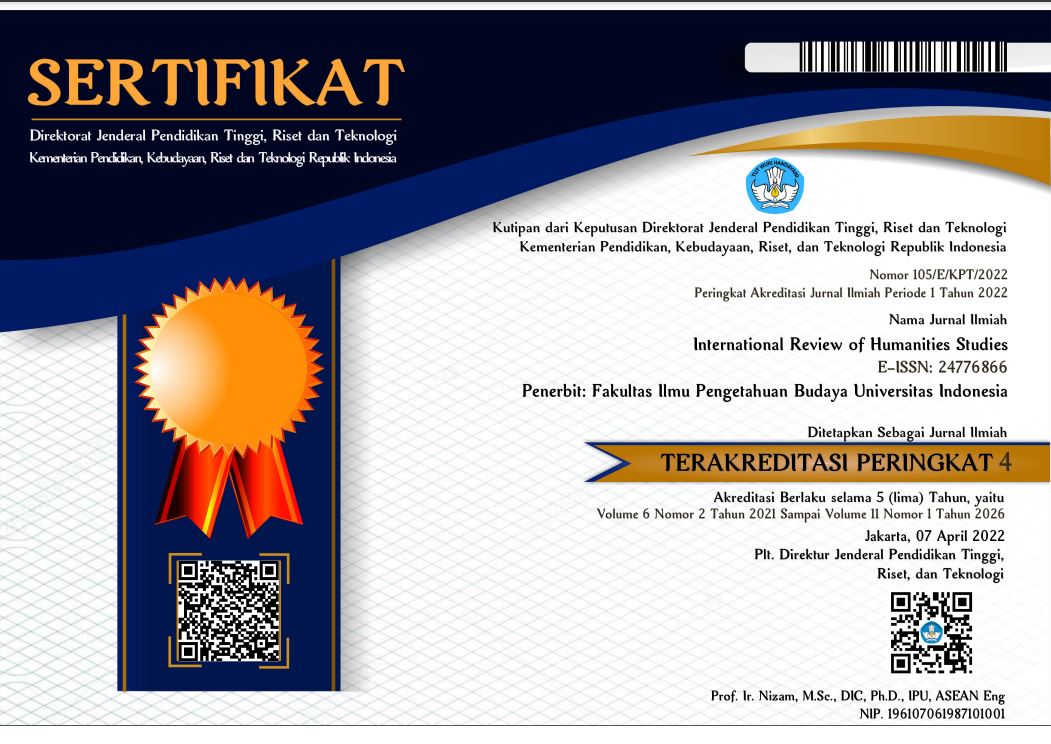International Review of Humanities Studies

Abstract
Drastic socio/political and economic changes in the world have perhaps led to global mass migration, transcontinental transport or scattering of people away from their established or ancestral homeland. This obviously explains the vitality that has characterized the creative impetus of intertextuality and adaptation mechanics used by certain Nigerian diaspora dramatists over the years as group identity formation and social pattern of identity politics and cultural belonging in expressing universal human concerns. The question however is; has the adaptation of classical or historical plays to the dawn of modern play texts by Nigerian diaspora dramatists reinforced the Nigerian culture? The condition is foregrounded on the mind-set of most literary critics, who now seek to know where ‘home’ actually is, or what ‘rights’ and/or ‘entitlements’ an indigene-settler within the diasporic framework can celebrate in terms of human diversity or uniformity as they provide an insight into a world that is different from their own. It is this conceptual and cross platform reflections on themes and context within the diasporic construct of trans-textual adaptation, cultural citizenship vis-à-vis national or global idea of developing culture across borders that the paper attempted to interrogate. Using adaptation theory as its framework, the paper adopts a qualitative method of investigation. It is assumed that, the likes of Wole Soyinka, Ola Rotimi, J.P. Clark, Femi Osofisan, Ngugi Wa Thiong’o, Athol Fugard, Efua Sutherland and a host of others had adapted foreign play texts in order to engender socio/political interrelatedness based on their diasporic experiences and worldviews. The paper, therefore, concludes that; Diaspora formations have actually influenced theatre practice in Nigeria nay Africa through play-texts adaptation paradigms as vehicles that can be supportive of constructing peaceful societies.
Recommended Citation
Gbilekaa, Saint E. T. and Ejue, Olympus G. Ph.D
(2021)
"RETHINKING THE HUMANITIES IN THE CONTEXT OF INTERTEXUALITY AND ADAPTATIONS WITHIN THE DIASPORIC CONSTRUCT,"
International Review of Humanities Studies: Vol. 6:
No.
1, Article 14.
Available at:
https://scholarhub.ui.ac.id/irhs/vol6/iss1/14
Included in
Anthropology Commons, Arts and Humanities Commons, Education Commons, Public Affairs, Public Policy and Public Administration Commons


